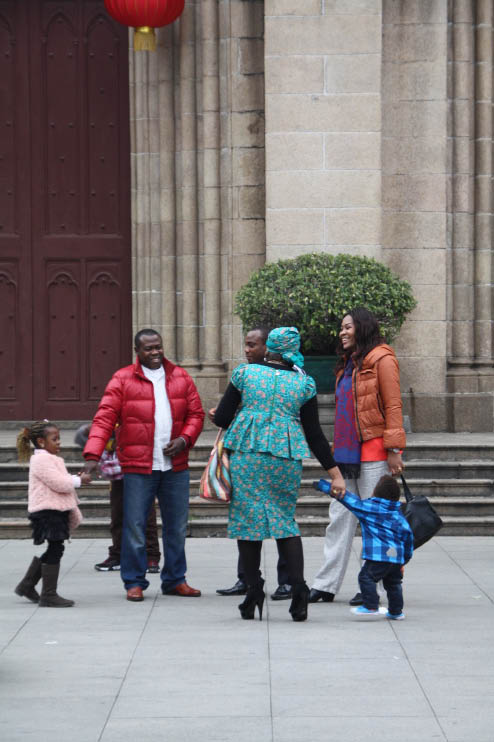| Stories from “Africa Street”
By MA XIAOYI, LIU JUN & WU CHUNYAN
IN recent years, the influx of African businessmen to Guangzhou has drawn attention from both domestic and international society. These business pioneers from afar are reminiscent of the Chinese who went to foreign countries seeking fortunes decades ago.
At Guangzhou’s international airport, many lug heavy bags on their shoulders and wheel even heavier ones along the floor. Selling goods made in China in their home countries is great business. Their efforts not only satisfy the needs and wants of African consumers, but also promote the development of China and Africa.
Locals have long called the area around the intersection of Xiaobei and Huanshi roads in Guangzhou’s Yuexiu District “Africa Street.” Strolling the area, we met a constant stream of African-origin businesspeople, and the atmosphere was jovial. Shop fronts featured T-shirts sporting images of African celebrities and state leaders, and we passed bustling cafes and restaurants whose menus are infused with Asian and African specialties.
 |
African families about to enter a local church. |
“China Is Much Better Than I Expected”
Tianxiu Office Building on Xiaobei Road has the densest concentration of African businesspeople in Guangzhou. According to the building supervisors, in 2007 when the economy was in boom, over 70 percent of the more than 600 offices in the building were rented out to businessmen from African and Middle Eastern countries. Nowadays, although African occupancy has dropped to half the 2007 rate, Tianxiu is still the first port of call for African traders in the city.
The shopping area in Tower B of Tianxiu consists of many stores of varying sizes. The products sold here are mainly garments, home appliances, mobile phones and accessories.
When we arrived at Tianxiu, most of the stores were still shut, despite it being close to noon. A man selling Arab-style clothing on the second floor told us that most stores would open only in the afternoon. Although morning trade was almost negligible, shops did a roaring trade right through to about 11 pm, he said. Chinese vendors, used to the domestic norm of a strong morning trade and closing before evening, have had to change their habits.
| 